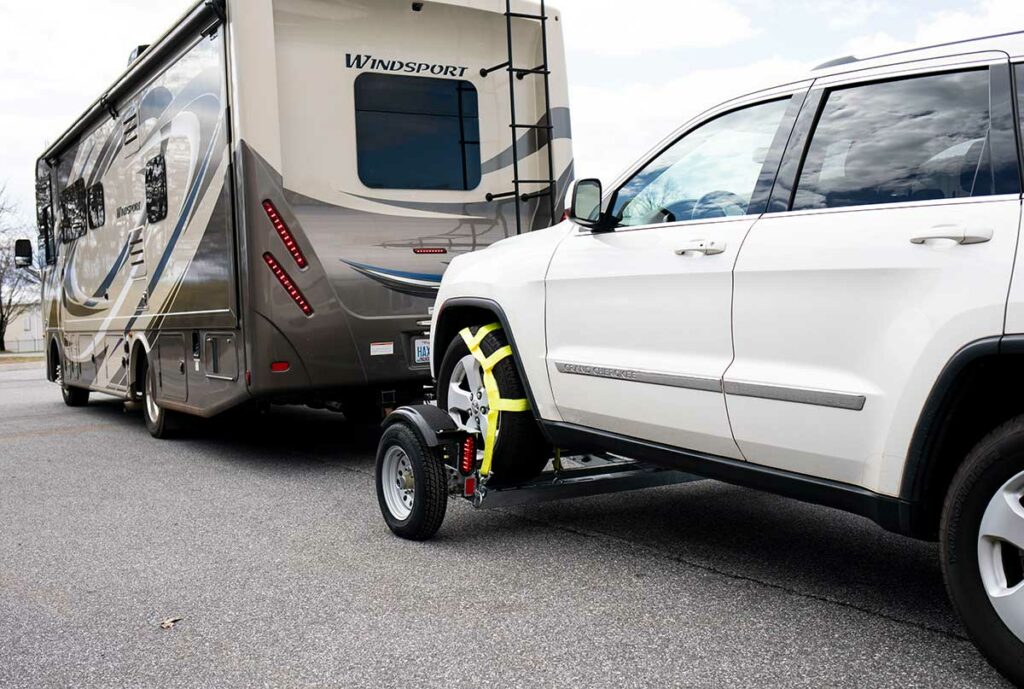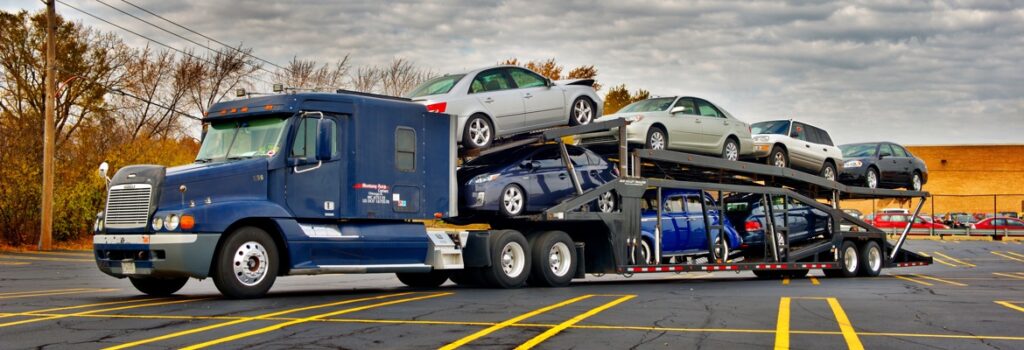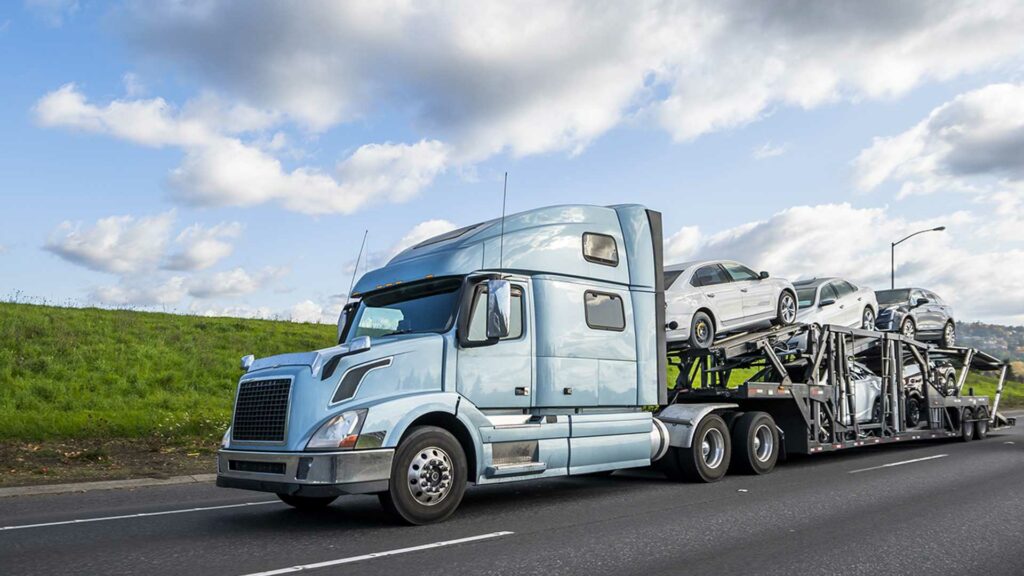Can I Pack My Car When Shipping It (In Detail)
When it comes to shipping a car, one of the most common questions that arise is whether it is possible to pack personal belongings inside the vehicle during transport. Many people wonder if they can use the space in their car to move additional items along with the vehicle. While the idea of consolidating belongings and saving on moving costs may be appealing, it’s essential to understand the regulations and guidelines surrounding car shipping.
This article delves into the topic to provide clarity on whether or not you can pack your car when shipping it, exploring the potential risks, restrictions, and important considerations to ensure a smooth and legal process. By understanding the rules and making informed decisions, car owners can make the best choices for their specific transportation needs.
Things To Consider About Packing a Car for Shipping
When packing a car for shipping, there are several important considerations to ensure a smooth and secure transportation process. First, remove all personal belongings from the vehicle, as most auto transport companies do not allow items inside the car. Clear out the glove compartment, trunk, and any other compartments.
Whether you are choosing open or enclosed transport that is also vital in this case.
Next, thoroughly clean the car, inside and out, to document its condition before shipping. Take photographs for reference. Check for any existing damages or mechanical issues, and inform the car shipping company in advance.
Inspect the tires, brakes, and battery to ensure they are in good condition. Keep the fuel level low to reduce weight and avoid potential hazards during transit.
Disable any alarm systems to prevent unnecessary activation during transportation. Retract or remove any antennas and fold side mirrors to avoid potential damage.
Notify the transport company of any modifications or alterations to the vehicle that may impact its transportation.
Ultimately, following these steps and adhering to the transport company’s guidelines will help ensure a hassle-free car shipping experience and the safe delivery of your vehicle to its destination.
Shipping Car and Belongings Together
Shipping a car and belongings together, also known as “household goods shipping,” can be a convenient option for individuals moving long distances or relocating to a new state. However, there are some essential considerations to keep in mind.
First and foremost, not all auto transport companies offer the service of shipping personal belongings in the car. It is crucial to find a reputable company that specializes in this type of shipping and has experience handling both cars and household goods. This blog will help you select trustworthy auto-shipping services.
Before loading any belongings into the car, check with the transport company about their policies, restrictions, and any additional costs involved. Most companies have limitations on the weight and type of items allowed inside the vehicle to ensure safe transportation.
When packing, secure all items properly to prevent damage during transit. Avoid placing valuable or fragile items inside the car, as there is always some risk associated with shipping personal belongings with a car.
Remember to remove all unnecessary items from the car and keep it clean before shipping. Also, make a detailed inventory of the belongings inside the car for your reference.
By selecting a reliable auto transport company and following their guidelines, shipping a car and belongings together can be a convenient and cost-effective solution for a smooth and efficient relocation.
Can You Pack Stuff Inside Your Car or Trunk and Ship It?
When it comes to shipping your car, the question often arises: can you pack stuff inside your car or trunk and have it shipped along with the vehicle? The answer is yes, but there are some important considerations to keep in mind.
Many auto transport companies allow you to pack personal belongings inside the car, but there are limitations.
Typically, the items must be confined to the trunk or the backseat area, leaving the driver’s seat and dashboard clear. The total weight of the belongings should also be within the car’s weight limit, and no valuable or hazardous items should be packed.
It’s essential to check with the auto shipping company about their specific policies and any additional charges to ship personal belongings. Additionally, make sure to secure the belongings properly to prevent shifting during transit.
While shipping personal belongings in your car can be convenient, it’s crucial to comply with the guidelines provided by the transport company to ensure a smooth and hassle-free shipping process.
Is It Legal To Ship Things in Your Car?
Shipping personal or household items in your car during auto transport is generally allowed and legal. However, there are some important considerations to keep in mind to ensure compliance with regulations and avoid any issues during the shipping process.
Most reliable car shipping companies permit customers to ship personal items inside the car, but there are limitations. Items should be confined to the trunk or backseat area, leaving the driver’s seat and dashboard clear for the driver’s safety. It’s essential to avoid packing valuable, hazardous, or illegal items.
While shipping personal belongings in your car is generally permitted, it’s crucial to check with the specific auto transport company about their policies and any restrictions they may have.
Additionally, be sure to properly secure the items to prevent any shifting during transit.
By following the guidelines provided by the auto transport company, you can ensure a smooth and legal shipping process for both your vehicle and personal belongings.
Is Shipping a Car and Belongings Across the Country Legal?
Shipping a car and shipping stuff across the country is generally legal, but there are important considerations to keep in mind. Most auto transport companies allow customers to pack personal items inside the car, but there are limitations to ensure safety and compliance with regulations.
Before shipping, it’s essential to check with the auto transport company about their policies regarding transporting belongings. Items should be confined to the trunk or backseat area, leaving the driver’s seat and dashboard clear for the driver’s visibility.
It’s important to avoid packing valuable, hazardous, or illegal items in the car during transport. Following the guidelines provided by the auto transport company will ensure a smooth and legal shipping process for both the vehicle and personal belongings.
Being aware of any restrictions and packing responsibly will help you avoid any potential issues during the shipping process.
Can I Pay Extra To Send My Things With My Car?
Many auto transport companies offer the option for shipping personal items inside your car during shipping, but it typically comes with limitations and additional costs. The extra service, known as “container shipping” or “enclosed transport,” allows you to place a limited amount of items in the trunk or backseat area of the car.
While it can be convenient to transport some belongings with your car, it’s essential to follow the guidelines provided by the auto transport company. Avoid overloading the vehicle and refrain from packing valuable or hazardous items.
Keep in mind that container shipping may incur higher costs compared to standard open-car transport. The added fees account for the extra weight and space taken up by the belongings. Before choosing this option, consider if the convenience justifies the additional expenses and adhere to the company’s policies to ensure a smooth and hassle-free shipping process for both your car and personal items.
The Good and the Bad Side
When it comes to transporting your vehicle, whether across the country or internationally, there are various options available. Auto transport services offer convenience and efficiency, but like any service, they have their upsides and downsides. Let’s delve into the good and the bad sides of auto transport to help you make an informed decision.
The Good Side:
- Convenience: Auto transport services save you from the hassle of driving long distances or dealing with the logistics of moving a vehicle. This convenience is especially beneficial when relocating for work or when purchasing a car from a distant location.
- Time-saving: By entrusting your vehicle to a reputable auto transport company, you free up your time for other important tasks, reducing stress during the moving process.
- Safety: Reputable auto transport companies use specialized carriers designed to protect your vehicle during transit. This minimizes the risk of damage and ensures a safe journey for your prized possession.
- Cost-effective: Despite the initial cost, auto transport can be more cost-effective than driving the vehicle yourself, especially when considering expenses like fuel, accommodation, and potential wear and tear on the car.
The Bad Side:
- Cost: Depending on the distance and service type, auto transport can be expensive, particularly for long-distance or enclosed transport options. It’s essential to get multiple quotes and consider the value of the service compared to other alternatives.
- Time constraints: Shipping schedules are subject to availability and demand. If you have strict timelines, you may need to plan well in advance to secure a suitable transport date.
- Potential delays: Although transport companies strive to meet delivery deadlines, unexpected factors like weather conditions, road closures, or mechanical issues can cause delays.
- Research and trust: To ensure a smooth and reliable experience, you need to research and choose a reputable auto transport company. Scams and unprofessional carriers exist, making it crucial to vet companies thoroughly.
Auto transport services offer numerous benefits, providing a practical solution for moving vehicles over long distances. However, like any service, it comes with its downsides. Understanding the pros and cons will help you determine if auto transport aligns with your specific needs and budget.
Prioritize safety, reliability, and customer reviews when selecting a transport provider to ensure your vehicle arrives at its destination securely and on time.
What Are the Rules for Packing Personal Belongings?
When preparing for auto transport, it’s essential to understand the rules and regulations regarding packing personal belongings in your vehicle. While some auto transport companies allow limited personal items, others have strict guidelines to ensure safety and compliance with transportation laws.
- Check with the Transport Company: Before packing anything in your vehicle, inquire with the auto transport company about their policies regarding personal belongings. Some companies have specific weight limits or prohibit certain items altogether.
- Limited Items: Generally, personal belongings allowed for transport are limited to lightweight and non-fragile items, such as clothing, blankets, and small household items. Valuables, hazardous materials, and perishable items are usually not permitted.
- Weight Limits: Exceeding weight limits can lead to additional charges or affect the transport company’s ability to safely transport your vehicle. Avoid overloading your car with heavy items.
- Securely Packed: Ensure all personal belongings are securely packed and placed in the trunk or rear seats, keeping the driver’s visibility and safety in mind. Loose items can cause damage during transit or pose safety risks.
- Insurance Coverage: Check if your auto transport company provides insurance coverage for personal belongings. However, it’s advisable to have separate insurance for valuable items.
- Remove Valuables: To avoid theft or damage, remove valuable items like electronics, important documents, and expensive jewelry from the vehicle.
- Declare Contents: If the transport company allows personal belongings, provide an accurate list of items to be transported, ensuring transparency and adherence to regulations.
- Cleaning and Inspection: Clean the vehicle thoroughly before transport and inspect it for any existing damage. Take photos to document the car’s condition.
By understanding and following the rules for packing personal belongings, you can ensure a smooth and hassle-free auto transport experience. Always communicate with the transport company and prioritize safety and compliance to protect your vehicle and belongings during transit.
What Items Can You Pack in Your Car?
When shipping your car, it’s essential to know what items you can pack inside to make the most of the available space. While auto transport companies have varying policies, there are general guidelines to follow:
- Clothing and Linens: Pack clothes, bedding, and linens, as they are lightweight and won’t damage your vehicle.
- Non-Perishable Snacks: Bring some non-perishable snacks for the road, but avoid items that may attract pests.
- Cleaning Supplies: Include basic cleaning supplies like wipes or tissues for convenience during the journey.
- Child Car Seats: If needed, secure child car seats in the vehicle.
- Personal Documents: Keep important documents like your driver’s license and vehicle registration with you.
- Emergency Kit: Have a small emergency kit with basic tools, a flashlight, and a first-aid kit.
- Maps or GPS: Carry maps or use a GPS system for easy navigation.
Remember, auto transport companies often have weight limits, so avoid overpacking. Fragile or valuable items, hazardous materials, and illegal substances are generally not allowed. Always check with the transport company about their specific guidelines to ensure a smooth and safe car shipping experience.
What Are the Risks of Packing Personal Items in Your Car?
Packing personal items in your car during auto transport may seem convenient, but it comes with certain risks. It’s crucial to consider the following factors before making a decision:
- Damage to the Car: Extra weight from packed items can strain the vehicle’s suspension, potentially causing damage or affecting its performance.
- Insurance Coverage: Most auto transport companies’ insurance covers the vehicle itself, not personal belongings. Any damage or loss to packed items might not be reimbursed.
- Security Concerns: Leaving valuable items in the car can attract thieves, especially during stops or overnight stays.
- Transport Regulations: Some states have specific laws regarding items in the car during transport, and violating these regulations could lead to fines or delays.
- Potential Delays: If your car is inspected at checkpoints, packed items might cause delays and inconvenience.
To ensure a smooth car shipping experience, it’s best to avoid packing personal belongings in your car. Instead, focus on securing your vehicle properly and separately transporting your personal items through other means.
Weight Limit
Weight limit is a crucial factor to consider in various aspects of life, from transportation to safety and beyond. In the context of car shipping, weight limits play a significant role in ensuring the safe and efficient transport of vehicles.
Car carriers have specific weight capacities they can handle, and exceeding these limits can lead to potential risks and complications. Overloading a carrier can strain its structure, affecting the vehicle’s stability and potentially causing damage during transit.
Moreover, complying with weight restrictions is essential for regulatory compliance and road safety. Overloaded vehicles pose hazards on the road, affecting braking distance, handling, and overall maneuverability.
When shipping a car, it’s vital to understand the weight limits set by the transport company and adhere to them strictly. By staying within the specified weight range, you can ensure a smooth and secure car shipping process while upholding safety standards and regulations.
Important Restrictions
Important restrictions are an essential aspect to consider in various aspects of life, from travel to shipping and beyond. When it comes to car shipping, understanding and adhering to important restrictions is crucial for a smooth and stress-free process.
Car transport companies have specific rules and regulations in place to ensure the safe and efficient transport of vehicles. These restrictions may include limitations on vehicle size, weight, and the type of items allowed inside the car during shipping.
Complying with these restrictions is not only necessary for the safety of your vehicle but also for regulatory compliance and the well-being of others sharing the road. Failure to follow these guidelines could lead to delays, additional fees, or even accidents during transportation.
Before scheduling car shipping, make sure to familiarize yourself with the important restrictions set by the transport company. By understanding and adhering to these rules, you can ensure a smooth and problem-free car shipping experience.
Instant Quote
An instant quote is a valuable tool that simplifies the process of obtaining pricing information for car shipping services. With the click of a button or a quick phone call, customers can receive an estimate for transporting their vehicle from one location to another. Get an instant quote right now!
The convenience of an instant quote allows individuals to compare prices from different car transport companies quickly.
This enables them to make informed decisions based on their budget and specific shipping needs. Additionally, instant quotes often come with transparent pricing, providing a clear breakdown of costs and services included.
While instant quotes are a useful starting point, it’s essential to consider other factors beyond price when choosing a car transport provider. Reputation, customer reviews, insurance coverage, and the company’s overall track record are equally important considerations.
In conclusion, an instant quote empowers customers to gather essential information efficiently, paving the way for a seamless car shipping experience with a reputable and reliable car transport company.
FAQs
Does the Driver Weigh the Items in the Car?
In most cases, the driver does not weigh the items inside the car. Car transport companies typically do not include personal belongings’ weight in the overall shipment weight. The weight they consider primarily includes the vehicle itself and any accessories attached to it.
It’s crucial for customers to adhere to the company’s guidelines regarding personal belongings, as excessive weight or prohibited items can lead to additional charges or delays in the shipping process.
Does Insurance Cover the Stuff in the Car?
Insurance coverage for personal belongings inside the car during auto transport can vary among different car shipping companies. Some companies offer insurance that includes limited coverage for personal items, while others may not cover them at all.
It’s essential to check with the specific car transport company about their insurance policy and consider additional insurance options if needed. To ensure maximum protection for valuable items, it’s advisable to remove valuable or delicate belongings from the car before shipping.















